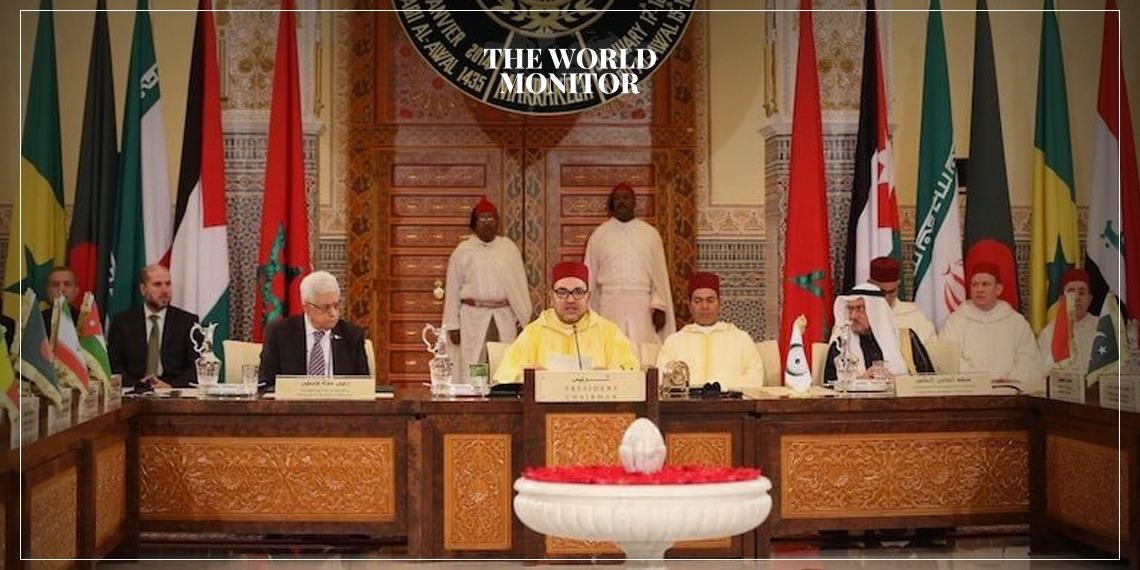Morocco has affirmed King Mohammed VI’s commitment, as the head of the Jerusalem Committee, to the Palestinian cause, in the context of the ongoing proceedings before the International Court of Justice regarding the request for an advisory opinion on the legal consequences of Israel’s policies and practices in the occupied Palestinian territories, including East Jerusalem. The Kingdom, represented by its ambassador in The Hague, Mohammed Al-Basri, participated in the hearing sessions held by the International Court of Justice from February 19 to 29.
In this context, the Moroccan ambassador attended in support of the oral presentation made by Palestine on February 19, alongside the Palestinian delegation headed by Riyad Al-Maliki, the Palestinian Minister of Foreign Affairs and Expatriates. Morocco’s attendance at the oral arguments related to this case is part of its ongoing active engagement with this file before the International Court. Accordingly, within the same case framework, Morocco submitted a written statement to the International Court of Justice, which was duly considered.
In this statement, the Kingdom, whose king Mohammed VI chairs the Jerusalem Committee of the Organization of Islamic Cooperation, reiterated its determination “to use all legal means at its disposal to protect the legal, historical, political, and spiritual status of the Holy City and to preserve its unique character as a city of peace and meeting place for adherents of all monotheistic religions.”
The Kingdom also renewed “its active commitment to respect international law and promote peace in the Middle East, which is achievable through a fair, comprehensive, and lasting solution based on the two-state principle: an independent Palestinian state based on the June 4, 1967, borders with East Jerusalem as its capital, living side by side in peace and security with the State of Israel, in accordance with international legitimacy and the resolutions of the United Nations, and as an extension of the Arab Peace Initiative.”
Morocco’s argument was grounded on the principles established by the “Jerusalem Call” signed on March 30, 2019, between King Mohammed VI, Commander of the Faithful, and His Holiness Pope Francis.
This significant document emphasized “the importance of preserving the Holy City of Jerusalem as a shared heritage of humanity and foremost as a land of meeting and a symbol of peaceful coexistence for followers of the three monotheistic religions, and as a center for values of mutual respect and dialogue. To this end, the special character of the Holy City as a multi-religious city, along with its spiritual dimension and unique identity, should be maintained and enhanced. Therefore, we hope that within the Holy City, access to the holy sites will be guaranteed for followers of the three monotheistic religions, ensuring their right to perform their religious rites therein, making the Holy City resonate with the prayers of all believers to God Almighty, the Creator of all things, for a future where peace and brotherhood prevail throughout the world.”
Moreover, Morocco’s argument reminded of the “international consensus on the legal status of Israeli settlements on parts of the occupied Palestinian territories – including East Jerusalem,” affirming that they “pose an obstacle to peace and threaten to make the two-state solution impossible: an independent and viable Palestinian state within the 1967 borders, living side by side with the State of Israel, in peace and security.”
Morocco’s argument stressed that “resolving the Israeli-Palestinian conflict through dialogue and negotiation, respecting the United Nations negotiation framework, especially Security Council Resolutions 242 and 338, remains the cornerstone for lasting peace and stability in the Middle East.”
“This objective guides the Kingdom of Morocco’s actions both bilaterally and multilaterally within the United Nations, through the work of the General Assembly and its six main committees, and regional groups represented in the Arab League and the Organization of Islamic Cooperation, within which His Majesty King Mohammed VI chairs the Jerusalem Committee,” according to the argument.






